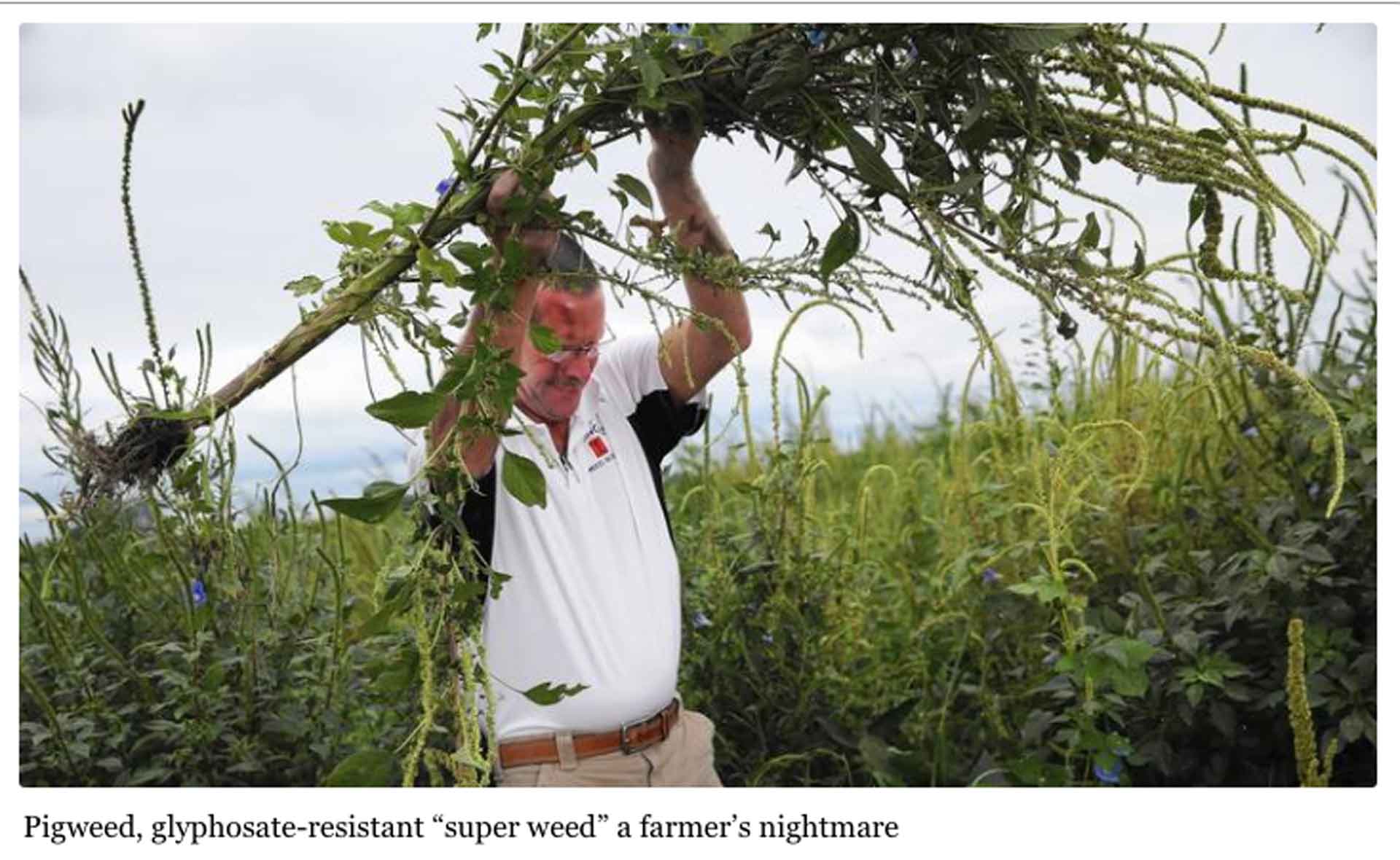A 2016 University of Illinois Plant Clinic herbicide resistance report shows that glyphosate herbicide resistance and PPO Inhibitor herbicide resistance have both reached epic proportions across the Midwest of the United States.
Herbicide-resistant weeds are symptomatic of a bigger problem: an outdated system of farming that relies on planting huge acreages of the same crop year after year. Farming practices such as monoculture, promotes excellent habitats for the accelerated development of weed and pest pesticide resistance. In response to the crisis, Monsanto and its competitors suggest using more of their herbicides to cover the resistant weeds. This approach ignores the underlying biology of agricultural systems and inevitably leads to more resistance. Great for chemical sales; not so great for land stewartship or honeybees.
The study examined 2,000 waterhemp or palmer amaranth weed samples from 10 states across the Midwest. Alarmingly 76.8% of the 593 sites studies 456 showed glyphosate resistance. Over 62% of the weed samples showed resistance to PPO inhibitor herbicides. And almost 50% of weeds on all the field sites showed resistance to both PPO inhibitor herbicides and glyphosate herbicides.
The University of Illinois Plant Clinic report has led Midwest farmers to question the glyphosate resistant (Roundup Ready) GMO crops that have been pushed on them over the last 20 years by biotech giants such as Monsanto. Bill Giles, a farmer from Illinois, who has been growing GM crops since 2009 stated “GM crops are on the edge of failure in the U.S. as farmers are asked to fork out more and more money on herbicides to try to control the superweeds. We simply can’t afford it! It is near the end of the road for these crops and many of my friends in the Midwest are on the edge of turning back to conventional farming methods.”
Related Links:
2016 University of Illinois Plant Clinic Herbicide Resistance Report
http://bulletin.ipm.illinois.edu/?p=3821
The impact on our natural environment has been devastating. The specific herbicides and pesticides manufactured and sold by these large bio-tech companies are creating new generations of superweeds and superbugs that have grown resistance to the petro-chemicals that supposedly protect the biocrops
http://organicprinciple.com/biofood_explained/transgenics
SuperWeeds
http://organicprinciple.com/issues/precautionary_principle/staxed
